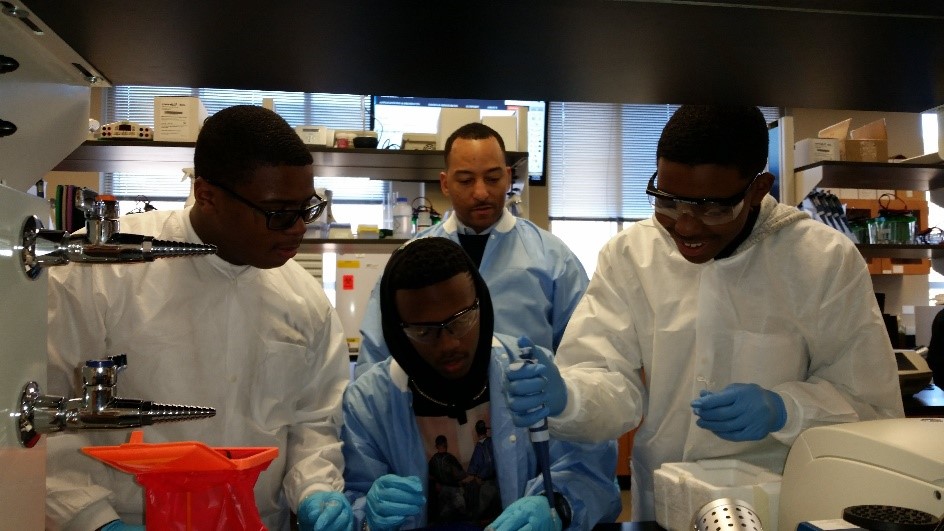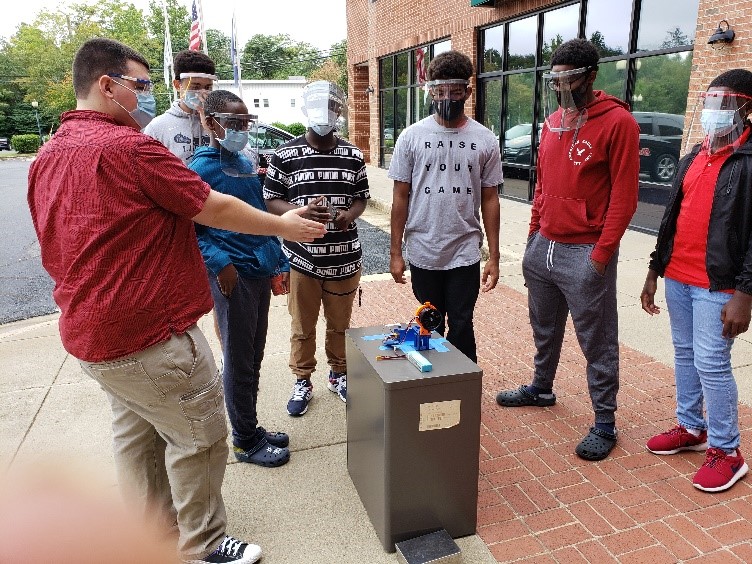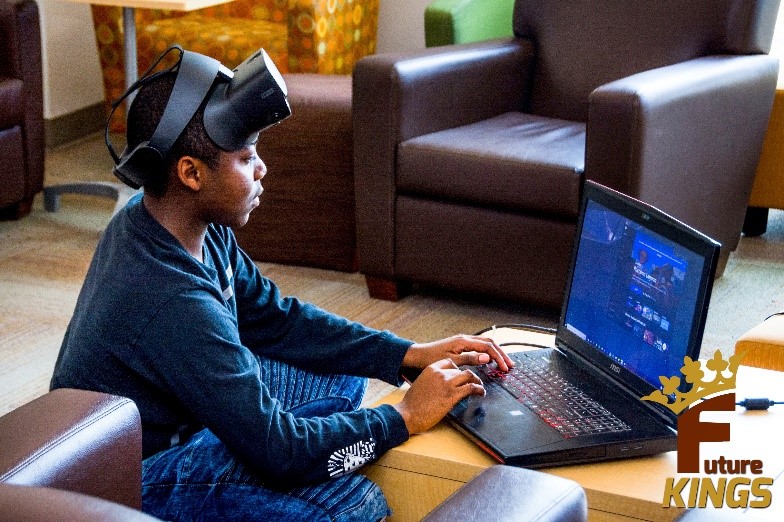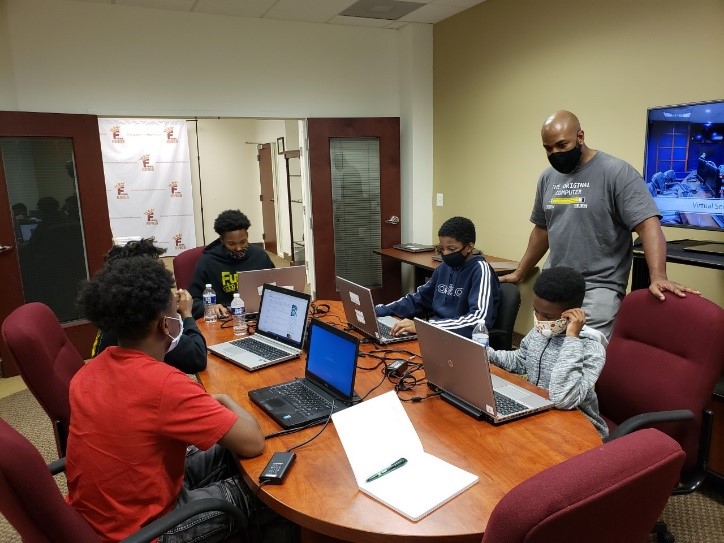
Future Kings: STEM is the Great Equalizer for these Young Men
Future Kings, like so many other organizations serving youth, is working with children who have the disadvantage of coming from lower-income neighborhoods and homes. The organization is distinguished by its heavy emphasis on STEM studies. Because by now, we all know that an education in STEM subjects is what leads to a better paying job in today’s world of advanced technology. Which is why we gave Future Kings one of our small grants. STEM is the way forward.
We spoke with Founder and Executive Director of Future Kings, Dr. Arik King, to learn more about this important work:
Kars4Kids: Tell us about the demographic you serve.
Arik King: Our target demographic is boys, grades 6 to 12, who are economically challenged but motivated to succeed. We are especially interested in boys with no role models who come from families where no one has ever attended college.
Kars4Kids: Is there a particular reason your participants are all male students?
Arik King: It is well documented that boys learn differently than girls. Our instruction is geared toward the way that boys like to learn.
Kars4Kids: Why STEM?
Arik King: STEM is a great equalizer. So much subjectivity is removed if you have advanced STEM skills. Unimaginable opportunities are available with advanced skills. Not everyone can be an elite athlete, a successful entertainer, or a sought-after journalist. However, everyone can find a STEM endeavor that they can master. Once mastered, access to high income career opportunities are readily available. This is because STEM is the backbone to virtually any 21st Century job.
Kars4Kids: Can you talk a bit about your cybersecurity program? What makes students choose this particular discipline, and are there many work opportunities in this field?
Arik King: Our cybersecurity program is designed to prepare participants for entry-level jobs in the cybersecurity field. Students in the program are prepared to pass adult level certification tests given by CompTia.
Students often join because they want to learn to hack other computers. That is why our program starts with the ethical use of the tools being taught. Part of that ethical use training is descriptions of the penalties for the misuse of the training provided. These penalties include jail time. We make it clear that youth is no defense against misuse.
There are a ton of opportunities in cybersecurity. Government agencies at every level and Fortune 500 companies are begging for cyber professionals. The recent spate of ransomware attacks against hospitals have continued to advertise the need for cyber professionals throughout the medical field. In short, any business with an online presence or which uses email and the internet needs support from cybersecurity professionals. One of our volunteer instructors is a 23-year-old who is earning $150,000 per year as a cybersecurity professional.
Kars4Kids: How does the biomedical studies program you offer prepare students for the future? What sort of jobs are available that incorporate this discipline?
Arik King: The BioMedical Sciences program prepares students in two ways. First, it is designed to give our participants a competitive advantage over their peers when they graduate. This means that many of the topics taught during the first years in college are already familiar to our participants as they enter that same college program.
The second way that our students are prepared is that they gain industry experience even while in secondary school. For example, our program was recently awarded a grant that promises to presage other such grants. This particular grant was awarded by Illumina, Inc. and is for COVID-19 research. Our students serve as research assistants and are working directly with professional scientists from the field of microbiology and precision medicine.
The program prepares students to be research scientists, lab technicians, biotechnology entrepreneurs, and for other similar careers.
Kars4Kids: Your website states that the custom engineering program prepares students for entry level engineering jobs and also makes them more attractive candidates for college. Who is the ideal candidate for this program? What percentage of your students stay the course and receive Autodesk Certified Professional certification?
Arik King: Our engineering program stresses the hands-on work that engineers do. In some ways, this can be considered “dessert first” for students that are considering a career in engineering. Many first year and second year engineering students drop out because there are so many gatekeeper courses that stress the math but not the actual work. Because our participants are familiar with the fun of using the design tools and making things, they are more committed to the entire journey. For example, I have included a picture of our participants at the end of a project where they created a small model of a jet engine.

Our students are ready for entry level engineering jobs because they are already familiar with 3D Design tools. Additionally, they have been taught that from design, there are many peripherals such as 3D printers of many types, laser cutters, painters, and a myriad of other modern devices. Beyond that, our program includes practice in what we call 21st Century skills. These skills are soft skills such as workplace protocols, financial management, presentation skills, and more. The combination of soft skills and technical skills is what completes the circle of preparation for entry level job opportunities.
Approximately 20% of our participants earn the Autodesk Certified Professional certification.
Kars4Kids: Computer Game Design, a collaborative effort in conjunction with Mason Game and Technology Academy of George Mason University, must be popular with the students you serve. Can you tell us something about the program? Are the skills learned in this program transferable to other disciplines?
Arik King: This program is designed to provide students with the core skills needed to complete projects from animations to simulations to virtual reality. We use a blended learning model that combines real time instructor-led in-classroom and virtual sessions with self-paced independent study using an online learning management system and virtual lab platform. The early elements of the program are designed to help students meet the requirements to pass the Unity “Certified Professional” certification.
The skills developed are transferrable. In addition to the project planning, collaboration, and attention to detail that the program requires, the program teaches the C-Sharp programming language. This programming language is used in several other disciplines. Additionally, it can be a gateway toward learning other programming languages such as Python and JavaScript that are used in other industries.

Kars4Kids: It sounds as though your applied learning program suits students who may find business more intriguing than STEM. Would that be an accurate assessment? What percentage of participants takes part in this program? What skills do the students learn there?
Arik King: You are correct about the benefit and attractiveness of the Applied Learning program. Students have to apply to be included in the Applied Learning program. Among the selection criteria are good attendance history and willingness to make the commitments required by the program. This means that their school grades are not allowed to slip and that their attendance at Future Kings meetings also cannot slip.
About 30% of our participants participate in the Applied Learning program. Additionally, we allow our alumni to participate in this program. Instructional opportunities for students in our Applied Learning program include entrepreneurial training in digital marketing, video production, photography, PC repair, website development, and stock market investing. Also, if someone wants to learn a business that we don’t offer, they can let us know and we will recruit a mentor to work with that student.
Kars4Kids: How has the coronavirus pandemic affected your organization on a day-to-day basis?
Arik King: The foundation of our instructional program has been face-to-face instruction built on a foundation of hands-on activities. The virus has severely limited our ability to meet in groups.

Kars4Kids: What’s next for Future Kings?
Arik King: We are taking the lessons learned from 10 years of teaching boys using a face-to-face, hands-on format and re-designing the program for on-line delivery. This program will take a lot of effort, but we believe it will have significant long-term benefits for the survival of our program.